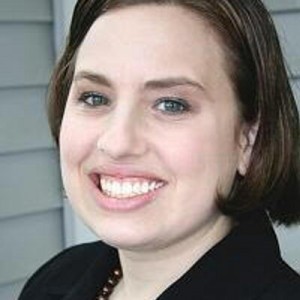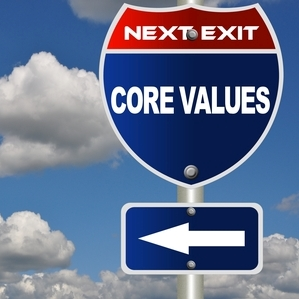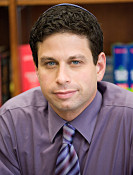Continuing a series of guest essays related to Keeping Faith in Rabbis. A Community Conversation on Rabbinical Education, this piece by Rabbi Elizabeth Bahar was almost like a meditation that relates beautifully to the upcoming holiday of Shavuot. Her imagery and urgency for forming a loving relationship with God echo some of the themes of Shavuot, which metaphorically represents a loving marriage between God and the Jewish people.
 By Rabbi Elizabeth Bahar
By Rabbi Elizabeth Bahar
My challenge as a rabbi is to keep Jews engaged when they are leaving and going somewhere else to find a connection with the Holy, whether it is to a yoga class, a meditation studio, or a Buddhist retreat. My other challenge comes from my own congregants who graduated from our religious school and are now sending their children to our religious school out of a sense of obligation, yet wonder if there is something wrong with them because they missed how to connect with God. Somehow institutional Judaism has failed them. We have failed to transmit the message of love, engagement, faith and community. I was trained intellectually and what I have learned more than anything else from my congregants, who are my teachers, is that religion is the language of the heart reaching out for the Divine. They have taught me this lesson repeatedly at their bedsides, meeting with them when faced with hardships, or even celebrating with them the joys in life. I have thanked them and continue to thank them for sharing and teaching me about the language of the Divine.
My disconnect stems from my training. I trained at an academic institution, which is very intellectual. The more intellectual your work, the more respect you received from both the faculty and your fellow students. Yet what was absent in that environment is both the questions and the answers around how to nourish our souls and listen to the message of love found in our Sacred Texts and emanating from the Holy. Our seminary’s focus on the intellect, because it is easy to quantify comprehension, yet it is not what is needed at people’s bedsides. What is needed there is LOVE. We were not taught how to find God in our own life.
As we struggle with our own connection to God, how are we to lead others to find God in their lives? It is not enough to find God in our individual lives, the real question is, how are we going to share this knowledge and create a sacred community? How can we build a sacred community when it may be something we never experienced. When people bring into the board room of our congregations their way of running a business forgetting that running a sacred community is different? We focus on programing because it is easier to see success or failure from it, than to focus on God and wonder about how to bring God back to the center of what we do. When we have an entire community of people who are religiously illiterate and are unclear about even what it is that is missing in their life. The problem is twofold 1) we struggle to find God and 2) our communities and therefore our seminaries struggle and are not even sure how to still look for the Holy.
The answer to grow a community is to go deep into the heart of life: To be totally present to the mystery of creation by developing an awareness of the Holy.
The longer I am out of seminary, the more I realize that our faith journey and belief is paramount to our ability to succeed at our task. Since finding a connection with the Holy, helps solve one of the problems, I would like to make a few suggestions coming from things that have worked for me on my own journey.
We must struggle to live life in the footsteps of God so that we experience the Eternal Truth.
A truth that Rambam points out to us on the High Holidays:
“Awake, you sleepers, from your sleep! Rouse yourselves, you slumberers, out of your slumber! Examine your deeds, and turn to God in repentance. Remember your Creator, you who are caught up in your daily routine, losing sights of eternal truth; you who are wasting your years in pointless activities that neither profit nor save…”[1]
We need to wake up to this Eternal Truth. The Eternal Truth is that God is!
As we read in the Book of Exodus when Moses meets God at the burning bush and ask who are you, God responds: “I Am that I Am אֶהְיֶה אֲשֶׁר אֶהְיֶה .” I came to understand my relationship with God is simply a mirror to my relationship with others in my life. If I am in a right relationship with others, then I am in a right relationship with God.
I pray every day! We must practice regularly speaking to God. To have a spiritual life means to have a spiritual practice, which means to set time aside to open one’s heart and mind to God. I engage in hitbodedut – a practice first defined by the great Rebbe Nachman of Breslov who said that it is going out into nature, forgoing all of this world’s noise and distractions to become one with our Creator. To speak out to God as our patriarchs and matriarchs did in the Bible. Rabbi Nachman taught specifically that it is
“inner-directed, unstructured,
active self-expression before G-d—
is the highest path of all.
Take it.” [2]
I strive to have a personal spiritual life. This is one example of the types of prayer I pray often:
Dear G-d, help me talk to You
About whatever is on my mind,
And especially about my desire to be close to You.
Give me time to be alone,
To speak in my own words and language.
Let me pour out my heart to You
Sincerely and truthfully,
And build up my spiritual strength
Through my great longing for You.[3]
Religion started because someone had an experience with God on a mountain top and came back down the mountain to encourage other people to have a similar experience. Ritual developed to force us to take a break from the external mindset of everything we have to do and get into the mindset of the Holy without having to trek into the desert and up the mountain to experience God. Our religious experiences reveal an ultimate eternal truth which we understand deeply: We are enough even in our brokenness.
Instead of seeing what is broken with the Jewish community, our congregations or even ourselves, let’s be grateful for what we have. Let’s take a moment to say thank you to God.
Remember the story of Gideon and the winepress. In the time of Gideon, as described in the book of Judges, the Jewish people would have to thrash their wheat on the floor of a cave out of fear that their enemies would overcome them and steal their food. While in the cave, Gideon encountered an Angel. The Angel told him that he would go onto lead the Jewish people out from the hands of the Middianites. Gideon asked God for a sign. The sign that Gideon had, was fire that ate up the sacrifice that Gideon placed upon the rock. Gideon then went out to battle knowing God was with him he had faith and then won. Additionally that faith was what brought the people with him.
Let’s not run into the cave because we are afraid, and cling to our old institutions and isolate ourselves. We need to have faith in God and trust our communities to share with them our doubts. We need to have an active spiritual life, a life outside the rabbinate, a life with family and friends.
By letting people enter the world of the spirit and sharing with them what it means to be emotionally and spiritually present for someone or a community we can share our burden. By allowing ourselves to be vulnerable we are exposing ourselves like Gideon did. Not only do we need to share this world with our congregants, we need to change the business of the rabbinate starting at seminary and in our congregations.
In seminary we need to both write the academic papers and explore the true nature of God in our lives. True education begins with where the student is, not where the teacher wants them to be. Our congregants don’t want to hear from us what Soloveitchik said on faith unless we can connect it directly back to their lives. We need to discuss why Judaism is relevant to our lives and be able to make it relevant to the lives of our congregants. We need to know and love our sacred texts and be able to share that love with our communities. We need to be like Gideon going out and leading the people and not hiding from them.
Rabbi Elizabeth Bahar has served as the congregational rabbi at Temple B’nai Sholom in Huntsville Alabama since being ordained from HUC in 2009. In that time she has received the Rabbi Jeffery L. Ballon Interfaith Leadership award from Interfaith Mission Service in 2011. And was named by the Forward was one of the most inspiring Rabbis in 2015. She is also on the boards of the South East Region of the CCAR, Interfaith Mission Service and Southeast Clergy Association.
[1] Maimonides, Hilkhot Teshuvah III.4
[2] The Empty Chair, p. 91
[3] Between me and You, p. 342





